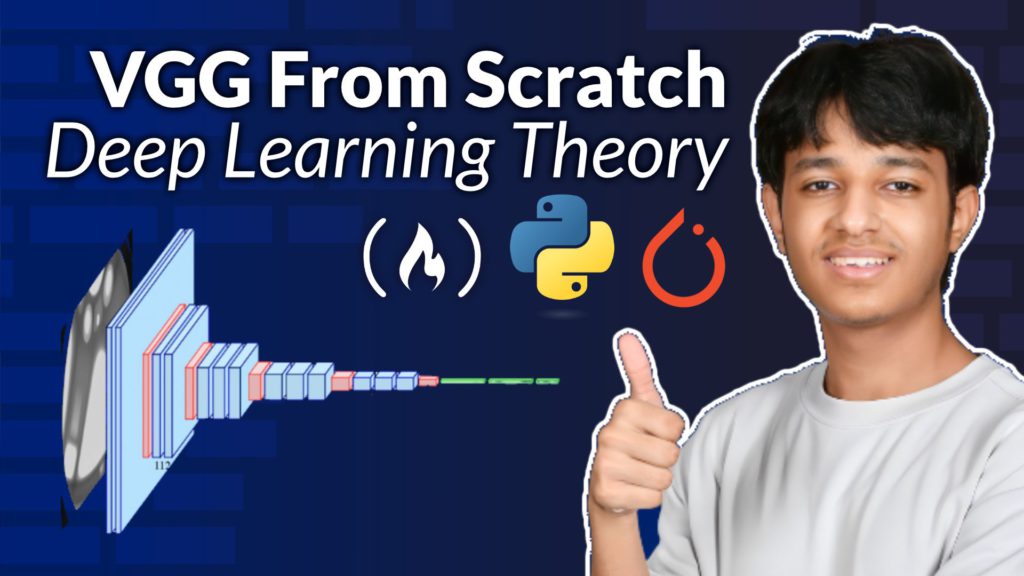Visual Geometry Group (VGG) is one of the most influential convolutional neural networks in computer vision. It is a deep convolutional neural network architecture known for its simple, uniform use of small 3×3 filters stacked in sequence, enabling powerful image recognition and feature extraction.
We just published a course on the freeCodeCamp.org YouTube channel that will teach you to rebuild the VGG architecture from the ground up while mastering the theory, mathematics, and design principles that shaped it. Mohammed Al Abrah created this course.
This course explores the origins and philosophy behind VGG, breaks down the math of convolutions, and compares VGG’s design to its peer architectures, all while building a modular, transparent implementation in PyTorch. You’ll gain practical experience with data handling, transformation, and visualization in Google Colab, and use tools like torchinfo, matplotlib, and CNN Explainer to analyze and interpret your models. The course features a full training loop with live loss curve plotting, fine-tuning, and plenty of opportunities to experiment and visualize results.
Here is the full list of sections in the course:
Welcome & Overview of the VGG Atlas
Philosophy Behind VGG: Depth with Simplicity
Historical Origins & Architectural Motivation
Mathematics of Convolution in VGG
Design Principles: Uniformity & Depth
Peer Comparison: VGG vs Contemporary Architectures
Training Strategy: Optimizing the VGG Model
Exploring Data Augmentation Techniques
VGG in Transfer Learning Applications
Visualization & Interpretability Techniques
VGG Variants: A Family of Deep Nets
Hands-on Walkthrough: Practical Applications
VGG Ecosystem & Research Resources
Kicking Off Practical Labs in Google Colab
Setting Up Your Coding Environment
Tiny VGG: Building the Model from Scratch
Importing Essential Libraries
Loading and Preparing Data in Google Colab
Familiarizing with Data Folders and Files
Setting Up the Directory Path for Data
Becoming One with the Data
Visualizing Sample Images with Metadata
Visualizing Images in Python Using NumPy and Matplotlib
Transforming the Data
Visualizing Transformed Data with PyTorch
Transforming Data with
torchvision.transformsLoading Data Using
ImageFolderTurning Loaded Images into a DataLoader
Visualizing Some Sample Images
Starting VGG Model Construction & Explaining Structure Using CNN Explainer Tool
Replicating the CNN Explainer Tool VGG Model in Google Colab Using Code
Instantiating an Instance from the VGG Model
Displaying and Summarizing the VGG Model
Dummy Forward Pass Using a Single Image
Using
torchinfoto Understand Input/Output Shapes in the ModelModel Summary
Creating the Training and Testing Loop
Creating a Function to Combine Training and Testing Steps
Calling the Training Function
Training the Model: Running the Training Step
Reading the Results, Fine-Tuning, and Improving Hyperparameters
Plotting the Loss Curve and Fine-Tuning with Different Settings
Watch the full course on the freeCodeCamp.org YouTube channel (5-hour watch).
Source: freeCodeCamp Programming Tutorials: Python, JavaScript, Git & MoreÂ

